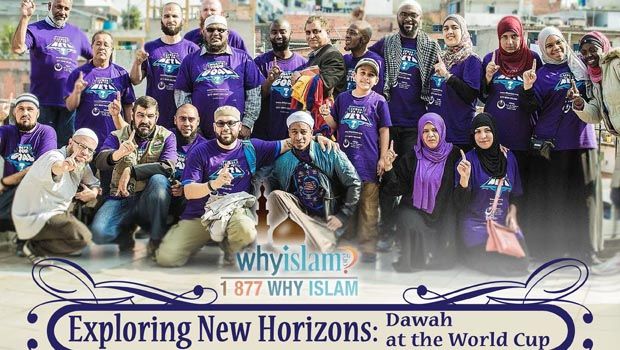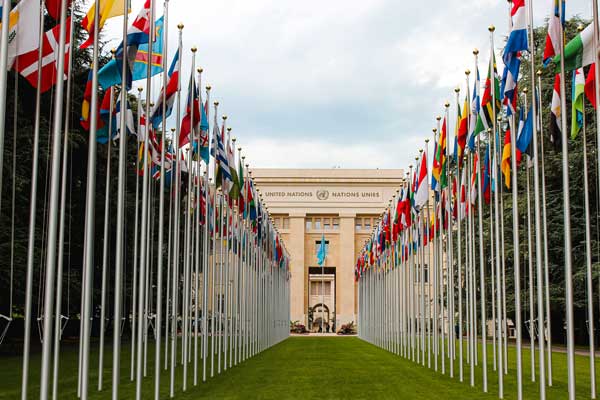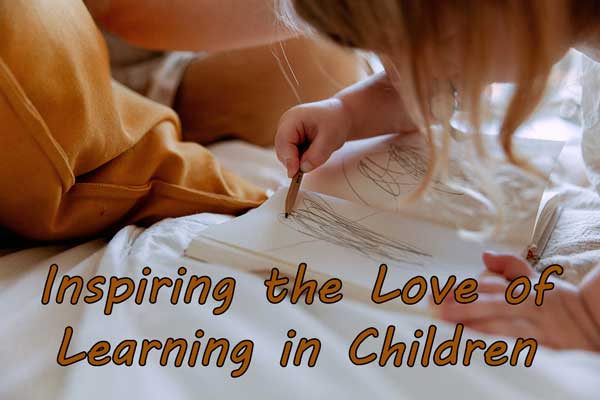According to a Muslim historian, Khashkhash ibn Said ibn Aswad from Islamic Spain sailed across the Atlantic Ocean and made contact with the inhabitants of a distant land. He then returned safely to Andalusia with treasures and tales of his adventures. If this story is true, this would mean that he reached the New World over 600 years before Christopher Columbus. Historian Abu al-Hasan ‘Al? al-Mas’?d? (871-957), in “The Book of Golden Meadows,” speaks of this story: “In the ocean of fogs [the Atlantic] there are many curiosities which we have mentioned in detail in our Akhbar az-Zaman, on the basis of what we saw there, adventurers who penetrated it on the risk of their lives, some returning back safely, others perishing in the attempt. Thus a certain inhabitant of Cordoba, Khashkhash by name, assembled a group of young men, his co-citizens, and went on a voyage on this ocean. After a long time he returned back with booty. Every Spaniard knows this story.”
It is important to learn different languages and cultures to better answer the questions that others have about Islam. That will have a significant impact on dawah work
Similarly, in 1311, a naval fleet of 400 ships with Muslim passengers from Mali was swept off course and crossed the Atlantic Ocean, discovering a new world in the west and engaging in trade with its natives. Of the fleet, only one ship returned and its captain told the Mali ruler at the time, Prince Abu Bakr II, about their remarkable journey. Cited in an article by Joan Baxter, “Africa’s greatest explorer,” on BBC news online, a Malian scholar, Gaoussou Diawara, in his book, “The Saga of Abubakari II,” writes that Abu Bakr was Intrigued by this story and decided to follow in their footsteps, preparing an expedition of his own to sail the Atlantic. These contacts between Muslim travelers and the indigenous people of the Americas began to shape the history of the lands that were soon to be “discovered,” conquered, and colonized, by a once Muslim-dominated Spain. The trading that allegedly took place between the two cultures would have facilitated the introduction of Islam, much like Islam spread to Indonesia through commercial contact between Muslims and islanders. There are a number of historical narratives that suggest that some native inhabitants of the Americas practiced Islam and even spoke Arabic due to continuous interactions with Muslim traders.
Even during the colonization period, immigration from both the Iberian Peninsula and Africa shaped the cultures, traditions, and languages of countries and territories in Latin America. With waves of immigration from Muslim countries to Latin America and the voluntary conversion of natives to Islam, the number of Muslims from Mexico to Argentina continues to rise. Currently, the estimated Muslim population in Latin American countries combined is anywhere from 4 to 7 million, the largest concentration being in Brazil with an estimated 1.5 million.
Certainly, Islam has played a colossal role in the history of Latin America, a land which some are calling the “final frontier” of Islam. Muslim organizations engaging in Islamic propagation have realized this fact, and turned a vigilant eye towards these lands. Unlike the brave navigators and explorers of the past who spent months or even years on their journeys, those making dawah today have the advantage of technology which facilitates contact and information-sharing between the two cultures, making Latin America a fertile ground for outreach and education. It is no wonder that Muslims in Latin America’s closest neighbor, the United States, with a sizable Latino population of its own, have taken on the task of paving the way for dawah missions to their southern neighbors. One such effort took place recently with the FIFA 2014 World Cup as the venue. What began as an over-ambitious idea in the imagination of an associate of the Islamic Circle of North America’s WhyIslam project, surged into an unprecedented tidal wave of dawah efforts in Latin America, particularly in Brazil. The FIFA World Cup 2014 soccer tournament was the second hosted by Sao Paulo, Brazil, the first being held in 1950. It was the perfect opportunity for outreach, given the global popularity of futbol, or soccer, and the proximity to the US, where WhyIslam’s headquarters is located.
WhyIslam directors and coordinators began the massive undertaking months in advance, networking with organizations and individuals to put together teams, assign tasks, and develop a strategic plan. It was determined that the propagation efforts in Brazil would culminate with a global day of outreach, termed “Global Dawah Day” (GDD) to be held on July 5. In order to promote and fund the project, WhyIslam elaborated a successful marketing campaign, using advertising in photos, videos, email blasts, and posting to social media outlets like YouTube, FaceBook, Instagram, and Twitter. Well-known Muslim lecturers, personalities, and imams such as Nouman Ali Khan, Omar Suleiman, Yasmin Mogahed, Hamza Tzortsis, Abdurraheem Green, Boona Mohammed, and Isa Garcia, provided video clips endorsing the campaign and calling for support and participation.
The resonating theme for WhyIslam’s bold endeavor was “What is Your Goal?”, a play on soccer lingo intended to make one reflect on the true goal or purpose in life. There was a webpage (www.whatisyourgoal.org) set up for teams, organizations, and individuals to register their dawah event and to follow the endeavors and accomplishments of the crew in Brazil. The official flyer for GDD was printed on cards, banners, and posters and plastered over purple T-shirts that were provided to eager volunteers on six continents who vowed to participate in the World Cup street dawah and/or GDD. Many organizations came on board, one of which was the Centro de Divulgação do Islam para América Latina or CDIAL. CDIAL is one of the most prominent dawah-driven organizations in South America based in Brazil. They helped to facilitate housing and itinerary logistics, translations and printing of materials for distribution during the World Cup, as well as providing their own volunteers on the ground. WhyIslam printed and distributed thousands of brochures in English, Spanish, French, and Portuguese, as well as translations of the meaning of the Qur’an to World Cup spectators and locals in Brazil.
Another group which contributed volunteers was the Islamic Education and Research Academy (iERA), headquartered in the UK, and its Mission Dawah team traveled across the Atlantic to partake in the outreach efforts. Another group was led by Imran ibn Mansur, widely known as Dawah Man, a YouTuber who has gained attention through his videos. They joined a group of 18 organizers, scholars, youths, and professionals from the US and Canada including Nahela Morales, the National Spanish Outreach Coordinator for WhyIslam, Shaykh Abdool Rahman Khan, a graduate of the Islamic University of Madinah, KSA, Abu Sumayyah Lebron, an Islamic Studies teacher and senior student at Mishkat University, Boona Mohammed, a famous poet and Islamic lecturer, and Cyrus McGoldrick, a writer and political activist.
Native Brazilian volunteers offered their language and cultural expertise to aid their visiting brothers and sisters during their stay in Sao Paulo, and arranged housing and meal accommodations. Although the World Cup attracts people from all over the world, including many English-speaking countries, one of the challenges team members faced was the language barrier. Volunteers represented various regions, some being of South Asian descent, others from Spanish backgrounds, and many from Europe and Canada. One volunteer, Moihudeen Syed, originally from Pakistan and now residing in Orlando, Florida, describes his experience: “The way I thought was that dawah could be given to anyone in the English language only. I realized after I landed in Sao Paulo that it is not the case. I had to face the language barrier on every step I made. So I think it is important to learn different languages and cultures to better answer the questions that others have about Islam. That will have a significant impact on dawah work Insha’Allah.” Syed is currently in the process of learning Spanish after being inspired by his trip to South America.
Others such as Morales, Lebron, and McGoldrick used their knowledge of Spanish to facilitate the dawah efforts since the Portuguese-speaking Brazilians understand it due to the similarities. Brazil is the only country in Latin America which recognizes Portuguese as its official language. Spanish is the official language of the overwhelming majority of countries in Central and South America, including a few which border Brazil. Brazilian convert and WhyIslam volunteer Muhammad S. Abdallah-Martins, who resides in Dallas, Texas, was one of the US team’s interpreters. A frequent traveler to his homeland, Martins emphasizes the need for these types of campaigns as he understands very well the challenges faced by local Muslims. Some of these challenges include a lack of adequate resources such as classes and activities for new converts, feelings of exclusion due to a language barrier between Brazilians and Muslim Arab immigrants, and the compelling need to establish cultural awareness between the two groups. Martins notes, “I don’t see a problem of being proud of your heritage, however, if we don’t identify with the local culture and do not make connections with the local convert Muslim community, then how are we supposed to spread the message of Islam?”
During the World Cup, volunteer groups did their best to distribute flyers, speak with both spectators and locals about Islam, and engage vendors, taxi drivers, and anyone they came in contact with in conversations about Muslims and their religion. The regular driver for the American crew, a man by the name of Carlos, accepted Islam during their stay citing his reason as being their generosity and respect towards the people of Brazil. He witnessed how they distributed food and toiletries to poor families in the slums of Sao Paulo and made regular visits to the area’s small musalla, or Islamic prayer space. There were many lessons learned during the trip, the greatest lesson being that these type of efforts need to continue, and as Morales stated, “This is just the beginning.” Martins suggested that organizations in the US continue to work with those in Brazil and other Latin American countries, as well as reach out to their Islamic centers to establish special programs. “We should assist them with organizing national and regional conferences, similar to the ICNA conventions, in order to unite Muslims from all over (South America) to learn about their Deen, address issues that they are facing, and to create opportunities for networking.” He also commended the efforts in Brazil thus far, stating, “I think that this is a great start and will have a great impact on strengthening the bonds between the Muslims living in Brazil and the native Brazilians that have embraced Islam.”
Muslim explorers, traders, immigrants, and converts of the past faced great challenges of distance and limited communication opportunities. They share, however, with the dawah journeyers, immigrants, and converts of today their passion for Islam. Many of our forebears’ dawah challenges have been resolved by the modern tools and technologies of today. However, it is up to the current and subsequent generations to step out of the comfort of their everyday lives to journey to other lands and explore new horizons, seeking the pleasure of the Lord by sharing with the local inhabitants the faith in One Creator and Sustainer of all.






